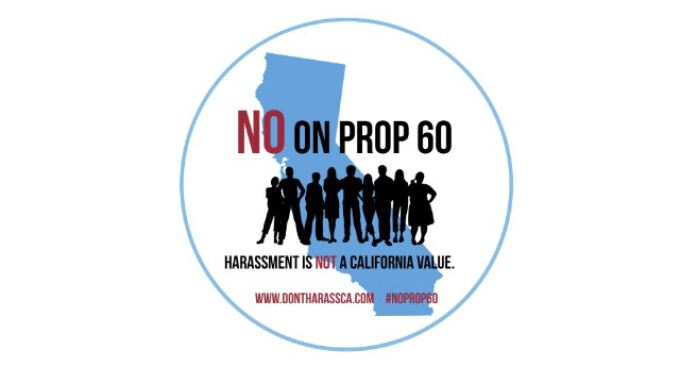SAN FRANCISCO — In a direct and unequivocal editorial, the San Francisco Chronicle came out in opposition to Proposition 60, the adult film initiative which would allow private citizens to sue adult performers when a condom is not visible.
The editorial says the proposition fails on multiple levels, and creates an environment where “bounty hunting” could result in harm to adult performers. While calling the issue “a worthy subject of concern,” the editorial’s headline — “A condom requirement for porn actors doesn’t make sense” — goes beyond even the issues specific to Proposition 60:
The initiative, however well intended, does not fully reflect the realities of the industry. Condoms can break during extended movie sessions. Performers can spread a number of diseases even with such protection. The industry requires testing of actors for HIV and most STDs every 14 days. The emergence of the HIV-prevention drug PrEP can greatly reduce the chance of infection.
There are other elements of Prop. 60 that pose problems. The measure gives private parties the right to sue a porn producer if state health officials don’t take action, a proviso that invites legal bounty hunting. Also performers, who often use screen names, could have their identities and addresses made public, a feature that invades privacy and could lead to harm from porn-addled stalkers…
This is a job for state regulators, not a narrow mandate through the initiative process. Vote no on Prop. 60.
Eric Paul Leue, executive director of the Free Speech Coalition, praised the Chronicle for seeing through the fear-mongering and anti-performer language of the initiative .
“The editorial board recognized that any regulation of adult film performers needed the input of the true stakeholders — something Michael Weinstein has repeatedly refused," Leue stated. "This is a dangerous initiative for adult workers, and we will defeat it in November.”
The San Francisco Chronicle joins the San Jose Mercury News and the East Bay Times in opposing Prop 60, as well as all major state parties and numerous public health and civil rights organizations.
The full editorial can be read here.








